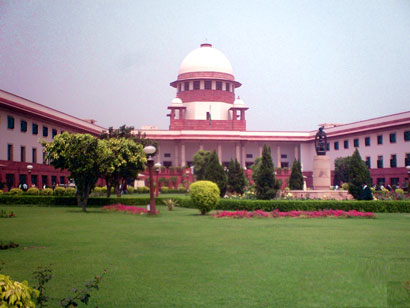DAINIK NATION BUREAU
In a landmark verdict, the Supreme Court on Friday recognised right to die with dignity and allowed an individual to issue an advance directive in the form of a living will authorising someone to withdraw his/her life support, if he/she went into a vegetative state because of an incurable and irreversible medical condition.
The apex court, which had in 2011 legalised passive euthanasia, said its directives will remain in force until the government brought a proper legislation on the issue. But active euthanasia — which involves administering some medicines to end life — still remains illegal in India. While reserving its verdict on living will on October 11, the Bench had said a person’s advance directive to withdraw medical support to let him/her die with dignity should take effect only after a medical board affirmed that the patient’s condition was incurable and irreversible.
A five-judge Constitution Bench headed by CJI Dipak Misra — which laid down a set of guidelines for the purpose — said life support can be withdrawn only after a medical board approved it.
The Bench, including justices AK Sikri, AM Khanwilkar, DY Chandrachud and Ashok Bhushan, said right to die with dignity was a facet of right life and liberty guaranteed under Article 21 of the Constitution.A “living will” is a document executed by an individual in full possession of his/her decision-making capacity, without any duress, enunciating the condition of ill health in which he/she would not like to prolong life by artificial support.
In such a situation, persons duly authorised by the patient should be allowed to arrange for termination of his/her life in terms of an advance directive in the “living will” by withdrawing artificial life support system.
Vipul Mudgal of Common Cause welcomed the verdict. “It’s wonderful it’s very good,” he said, adding “It will end exploitation of innocent patients and their family members by unscrupulous hospitals.”
It had said a certificate from a statutory medical board that a patient’s condition was beyond cure and irreversible would take care of apprehensions of relatives and doctors about withdrawing life support.
In its petition filed in 2005, Common Cause, an NGO, had contended that “right to die with dignity” was included in the “right to live with dignity” guaranteed under Article 21 of the Constitution of India.
The government had said legalising “living will” would amount to waiving of the fundamental right to life enshrined under Article 21 of the Constitution.
The government had opposed to the concept of “living will” as a principle of public policy, saying it was the state’s primary obligation to sustain life and not to legalise his/her wish to die. The concept of living will was prone to misuse, it had contended. The Centre had said it was vetting a draft law allowing passive euthanasia. Passive euthanasia was the law of the land after the top court’s 2011 ruling in the Aruna Shanbaug case, it had said.
But the government was in principle opposed to allowing people to make a “living will” as “it may be misused in the case of elderly people who are treated line burden by many”, the Centre had said
 Dainik Nation News Portal
Dainik Nation News Portal




